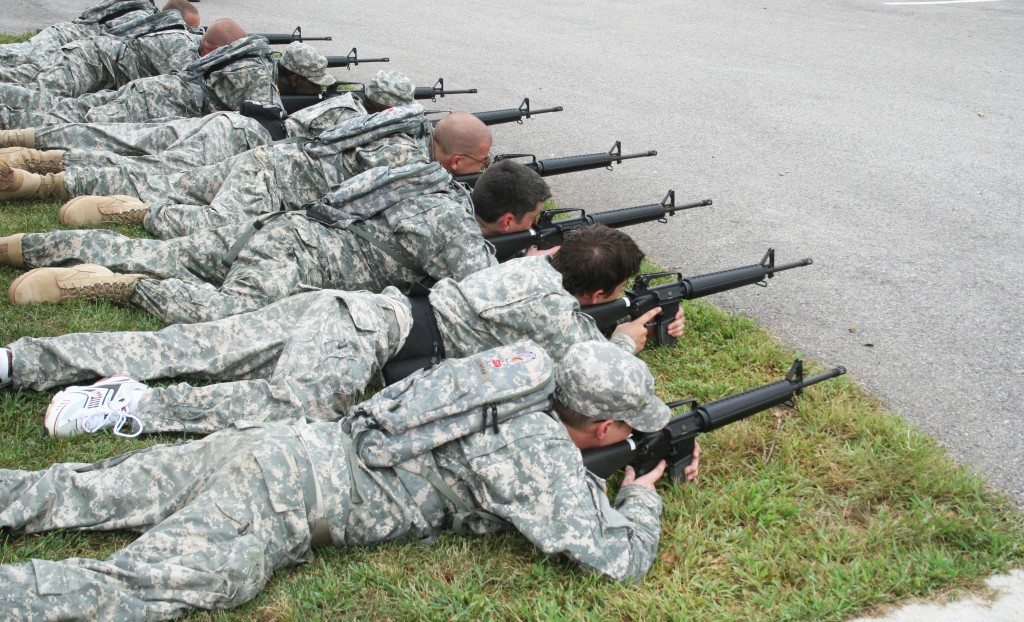Levi Cochran is a member if the 1035th brigade

Jayson Gifford
– Staff Writer –
Engineering Science student Levi Cochran is one of the few students who have decided to face the danger at hand and become a citizen soldier.
“I definitely believe in what our mission is and what we’re doing,” Cochran said.
Levi is one of the future members of the 94 Fox is the special electronics device and maintaining unit. The unit specializes in troubleshooting gear our current frontline soldiers use to fight modern day battles. “We work to maintain and repair all different types of electronic equipment ranging from night vision to guidance systems,” said Cochran.
In March 2011, Levi will ship out to his “A” school for rigorous training on these devices, but until then he remains as a part of the 1035th reception battalion at Jefferson Barracks. “It’s a large amount of preparatory work, but is essential just like every other operation” Cochran said.
So how does a typical day work out for citizen soldiers like Levi Cochran? A typical day in the 1035th starts around 5 a.m. with formation followed by a strenuous PT session that keeps the soldiers prepared for the call that may come anytime. Following the PT, their upper echelon or higher ranking commissioned or non-commissioned officers disperse Private Cochran and other 1035th soldiers to do their duties. “After my training it could be anything electronic, but for now the duties can vary from cleaning, all the way to problem-solving and troubleshooting other issues.”
Before deployment to basic training, the 1035th required to train in several different disciplines. At basic training, they will learn to polish their skills of warfare and military life, but their pre-deployment tasks and trainings take place at different military installations. National Guard installations, located in Festus and St. Louis County, is the home base where soldiers in training will cover salutes, weaponry, technology, combat scenarios and obstacle courses.The bare minimum needed before the initial deployment to basic training.
However, with July and August being the deadliest months of the war and deployments being 12 months long, Cochran continues to do his patriotic duty.
“I am extremely happy with my decision, and it feels excellent having the opportunity to serve my country and I look forward to having the opportunity to become a commissioned officer after I graduate,” Cochran said. Cochran looks forward to enrolling into the ROTC program at Lindenwood or Washington University to study aerospace or electrical engineering following his “A” school training and official induction into the United States Army National Guard.











